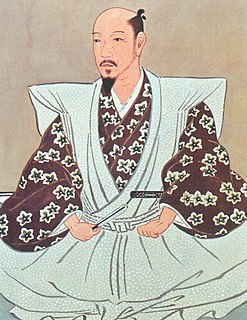A Quote by Wendell Berry
Beware the machinery of longevity. When a man's life is over the decent thing is for him to die. The forest does not withhold itself from death. What it gives up it takes back.
Related Quotes
We are left with nothing but death, the irreducible fact of our own mortality. Death after a long illness we can accept with resignation. Even accidental death we can ascribe to fate. But for a man to die of no apparent cause, for a man to die simply because he is a man, brings us so close to the invisible boundary between life and death that we no longer know which side we are on. Life becomes death, and it is as if this death has owned this life all along. Death without warning. Which is to say: life stops. And it can stop at any moment.
Meditation upon death does not teach one how to die; it does not make the departure more easy, but ease is not what I seek. Beloved boy, so willful and brooding, your sacrifice will have enriched not my life but my death. ... Centuries as yet unborn within the dark womb of time would pass by thousands over that tomb without restoring life to him, but likewise without adding to his death, and without changing the fact that he had been.
I don't think victory over death... is anything so superficial as a person fulfilling their normal span of life. It can be twofold; a victory over death by the man who faces it for himself without fear, and a victory by those who, loving him, know that death is but a little thing compared with the fact that he lived and was the kind of person he was.
Animals learn death first at the moment of death;...man approaches death with the knowledge it is closer every hour, and this creates a feeling of uncertainty over his life, even for him who forgets in the business of life that annihilation is awaiting him. It is for this reason chiefly that we have philosophy and religion.
Death is unimportant to a yogi; he does not mind when he is going to die. What happens after death is immaterial to him. He is only concerned with life-with how he can use his life for the betterment of humanity. Having undergone various types of pain in his life and having acquired a certain mastery over pain, he develops compassion to help society and maintains himself in purity and holiness. The yogi has no interest beyond that.
We owe them [animals] a decent life and a decent death, and their lives should be as low-stress as possible. That's my job. I wish animals could have more than just a low-stress life and a quick, painless death. I wish animals could have a good life, too, with something useful to do. People were animals, too, once, and when we turned into human beings we gave something up. Being close to animals brings some of it back.
When you pray to God resignedly, as though patiently accepting the punishment of grief at the death of a loved one, and you say: "Thy will be done O Lord. The Lord giveth, and he taketh away", you have not yet known the God of love, for God giveth only. God never takes that which has not been given. What God gives to you you regive to Him for His regiving.
You rejoice when God gives birth to life, yet you deeply grieve when you give rebirth to new life - for that is what death is.
There are two kinds of death, the death which is inevitable and common to all beings, and the death which is voluntary and particular to certain ones of them only. It is the second death which is prescribed for us in the words of the Messenger of Allah: "Die before you die." The resurrection is accomplished for him who dies this voluntary death. His affairs return to God and they are but one. He has returned to God and he sees Him through Him. As the Prophet said - on him be Grace and Peace!
What if it is for life's sake that we must die? In truth we are not individuals; and it is because we think ourselves such that death seems unforgivable. We are temporary organs of the race, cells in the body of life; we die and drop away that life may remain young and strong. If we were to live forever, growth would be stifled, and youth would find no room on earth. Death, like style, is the removal of rubbish, the circumcision of the superfluous. In the midst of death life renews itself immortally.







































